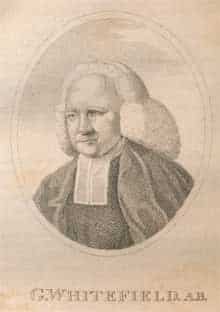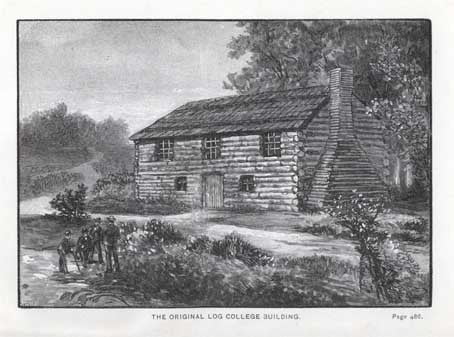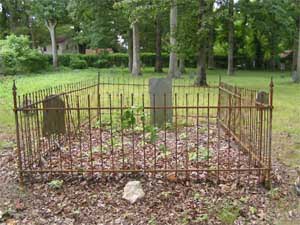This Day in Presbyterian History:
The Demise of a Soldier Parson
It was back on June 23 that we profiled the provision of psalm books as wadding for the American Revolutionary forces at the Battle of Springfield, New Jersey. The cry of “Give them Watts, boys, give them Watts,” referring to Isaac Watts’ many hymns, became a celebrated phrase from the Revolutionary War.
The Rev. James Caldwell, from whose mouth that famous line sprung, was an American Presbyterian minister from Elizabethtown, New Jersey. He was the pastor of the First Presbyterian Church of that town. Early on, this Scot-Irish minister threw his lot in with the forces of George Washington in the battle for freedom from Britain. Joining as a chaplain of the New Jersey troops, he rallied his church for the cause of liberty, with over forty of the members becoming line officers in the battles. Caldwell himself, was known at “the Soldier parson.”
He was born in Virginia from the well-known Scot or Ulster-Irish heritage of many Presbyterian patriots. Graduating from the College of New Jersey in 1759, he was ordained by the Presbytery of New Brunswick in 1761, and no doubt, installed as pastor of the First Presbyterian Church of Elizabethtown, New Jersey (now called Elisabeth).
Because his conviction for the American cause were so well-known, the British burned both the congregation and his house at least once. His wife was either accidentally or purposely killed by a British soldier who fired on her figure through a window or a wall, as she was praying for her children.
A year later, Rev. Caldwell was picking up a traveler in his buggy. After carrying the baggage to the horse-drawn buggy, he went back to pick up a package. An American sentry ordered him to stop but distance precluded the command from being heard. With that, the sentry fired and killed Rev. Caldwell on November 24, 1781. At the trial and subsequent hanging of the sentry, there were rumors that he had been bribed by the British to kill the soldier parson. At any rate, he was buried beside his wife in the cemetery of the First Presbyterian Church of Elizabethtown, New Jersey. A monument was placed up honoring him in 1846. Three towns in New Jersey are named after him, including an educational facility.
Words to live by: While the Rev. James Caldwell did not physically pick up a rifle and fire it at advancing British troops, the “soldier parson” did preach the necessity of armed revolution as well as provide supplies for the Jersey brigade. He is looked upon as a defender of liberty as well as preaching the words of grace to a lost people. He wasn’t the first Christian minister to embrace liberty and justice for God’s people, and he won’t be the last minister to do so. There is a place for ministers of the Word to apply that Word of God to the social and moral issues of the day. Our people need guidance to do the right thing in the right way.
Also on this day:
This day marks the 440th anniversary of the death of the Scottish Reformer, John Knox.
Through the Scriptures: 1 Corinthians 9 – 12
Through the Standards: Errors of Romanism regarding the Lord’s Supper
WCF 29:4
“Private masses, or receiving this sacrament by a priest, or any other alone; as likewise, the denial of the cup to the people, worshipping the elements, the lifting them up, or carrying them about, for adoration, and the reserving them for any pretended religious use; are all contrary to the nature of this sacrament, and to the institution of Christ.”





